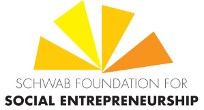 First Social Innovation Summit held on eve of the World Economic Forum’s regional Latin America meeting.
First Social Innovation Summit held on eve of the World Economic Forum’s regional Latin America meeting.- Schwab Foundation for Social Entrepreneurship launched the Policy Guide to Scaling Social Innovation at the Summit, a comprehensive global study of policy tools and initiatives currently being implemented by governments around the world.
- Learn more about the Schwab Foundation for Social Entrepreneurship at www.schwabfound.org
Lima, Peru, 23 April 2013 – The World Economic Forum and the Schwab Foundation for Social Entrepreneurship, in cooperation with the Ministry of Development and Social Inclusion of Peru, will convene government ministers, investors, business leaders and social entrepreneurs to discuss how social innovation models can more effectively contribute to inclusive growth. Co-Chairs at the Summit include: Carolina Trivelli Avila, Minister for Development and Social Inclusion, Peru;Bruce Mac Master, Director of the Department of Social Prosperity, Colombia; Alvaro Rodriguez Arregui, Co-founder and Managing Partner IGNIA Partners, Mexico; and Julie Katzman, Executive Vice-President, Inter-American Development Bank, USA.
Summit participants will focus on how social innovation and social entrepreneurship can be encouraged most effectively and what the appropriate role of government should be. Much of the day’s discussions will draw on the Policy Guide to Scaling Social Innovation, a comprehensive report resulting from nearly a year of research. The Policy Guide – a collaborative effort between the Schwab Foundation for Social Entrepreneurship, InSight at Pacific Community Ventures, theInitiative for Responsible Investment at Harvard University, and the SK Group – presents a framework for policy action, drawing from 14 case studies of policy tools and initiatives currently being implemented by governments around the world.
In addition, the Policy Guide profiles twenty social innovation models from the Schwab Foundation network, tackling pervasive challenges in health, education, employment, rural development, and urban development. The profiles describe how successful social enterprises achieve outsized social impact and provide governments, intermediaries and budding social entrepreneurs with a wealth of ideas on how to generate social impact in specific issue areas.
“The fact that there is so much policy experimentation under way around the world indicates just how much progress there has been over the past two or three years,” said Hilde Schwab, Co-Founder and Chairperson of the Schwab Foundation. “Many governments are truly beginning to recognize the potential of social entrepreneurship and are constructively engaging with all of the relevant stakeholders to deliver on the sector’s promise.”
Convened under the theme Developing an Action Plan to Advance Social Innovation, the Social Innovation Summit lays out an ambitious agenda to advance social innovation policy frameworks in Latin America and on the international stage. Several ministers from the region engaged in multilateral discussions with their counterparts from Peru and Colombia about what policy experiments are showing the most promise and why.
“A new institutional setting is emerging across Latin America, with several countries creating ministries in recent years that are explicitly mandated to create the right conditions to achieve growth with social inclusion in democracy,” said Carolina Trivelli Avila, Minister for Development and Social Inclusion, Peru. “This represents a fundamental shift in the way government views its role – away from being the exclusive institution tasked with improving public welfare and more towards catalysing the relevant actors and markets and incentivizing collaborative efforts, especially with the private sector.”
This collaborative approach to creating social value is underscored by the announcement today of the launch of Innovate to Include, a national taskforce chaired by Minister Trivelli and mandated to promote social innovation in Peru. Founding members of the taskforce will be present at a signing ceremony at the close of the Social Innovation Summit, including the Inter-American Development Bank, the National Confederation of Private Business Association of Peru, and the Ministry of Development and Social Inclusion.
“What we are trying to do is to create an environment that is conducive to more and better social innovation,” explained Minister Trivelli. “This will generate positive effects on the quality of life of those Peruvians who live in a condition of extreme exclusion. The task force will engage the best talent and institutions across both public and private sectors to think, design, and implement solutions to the most pressing issues in Peru. The task force will be responsible for preparing the design of the Social Innovation Fund, which will identify problems and opportunities that require an innovative and sustainable solution and will provide technical and financial assistance to such solutions. It will also collect experiences and best practices both in the locally and internationally to foster social innovation in Peru.”
“We are delighted that Peru is demonstrating regional leadership on social innovation,” said David Aikman, Senior Director, World Economic Forum and Head, Schwab Foundation for Social Entrepreneurship. “They are proving that governments can – and are – taking real, credible action to accelerate the development of this nascent sector.”
